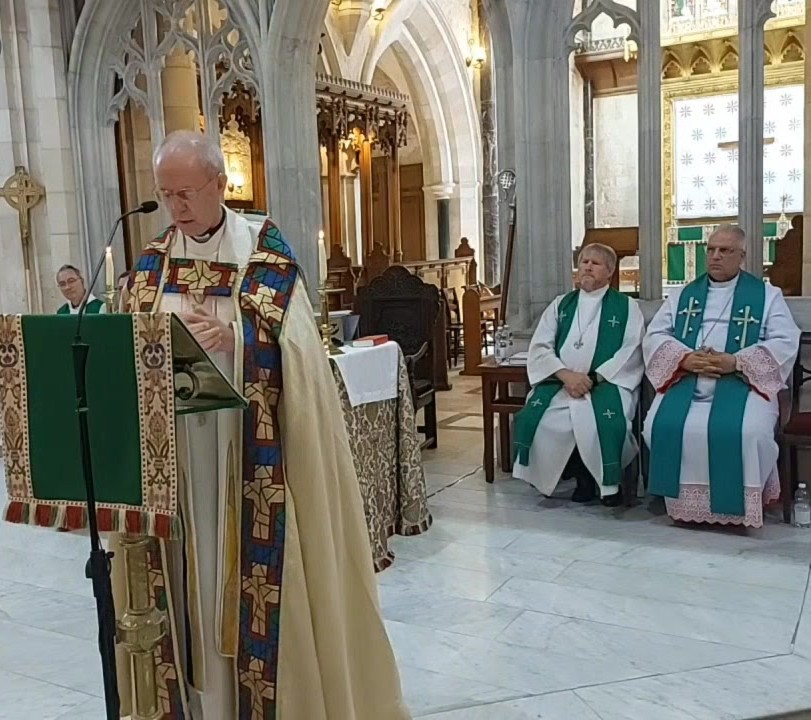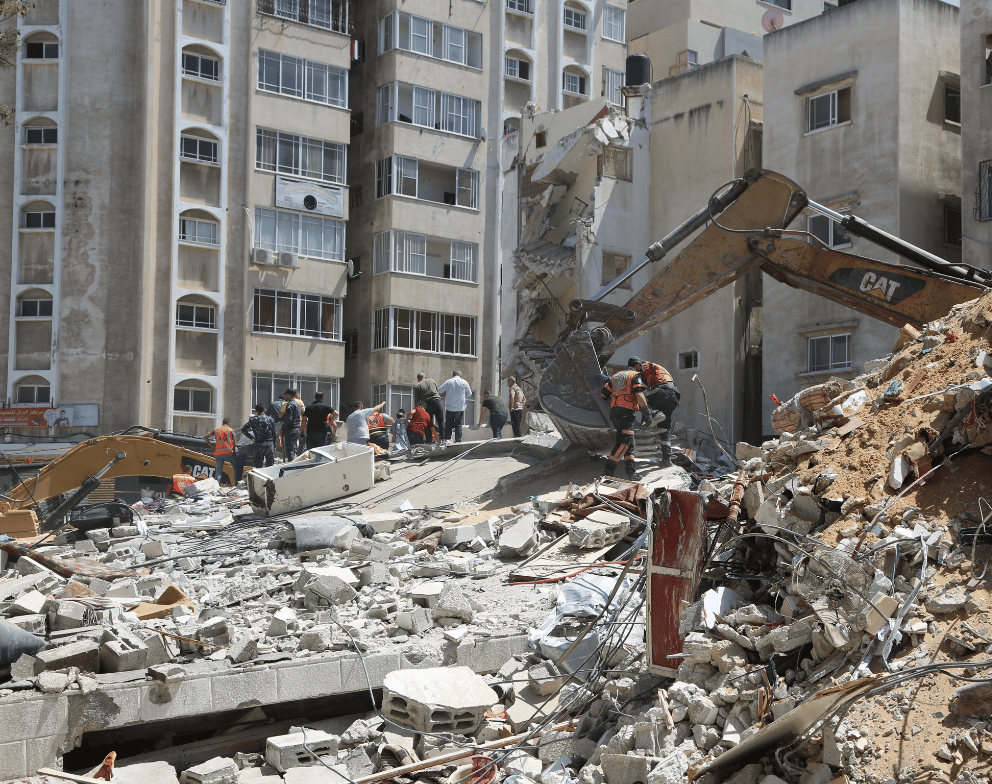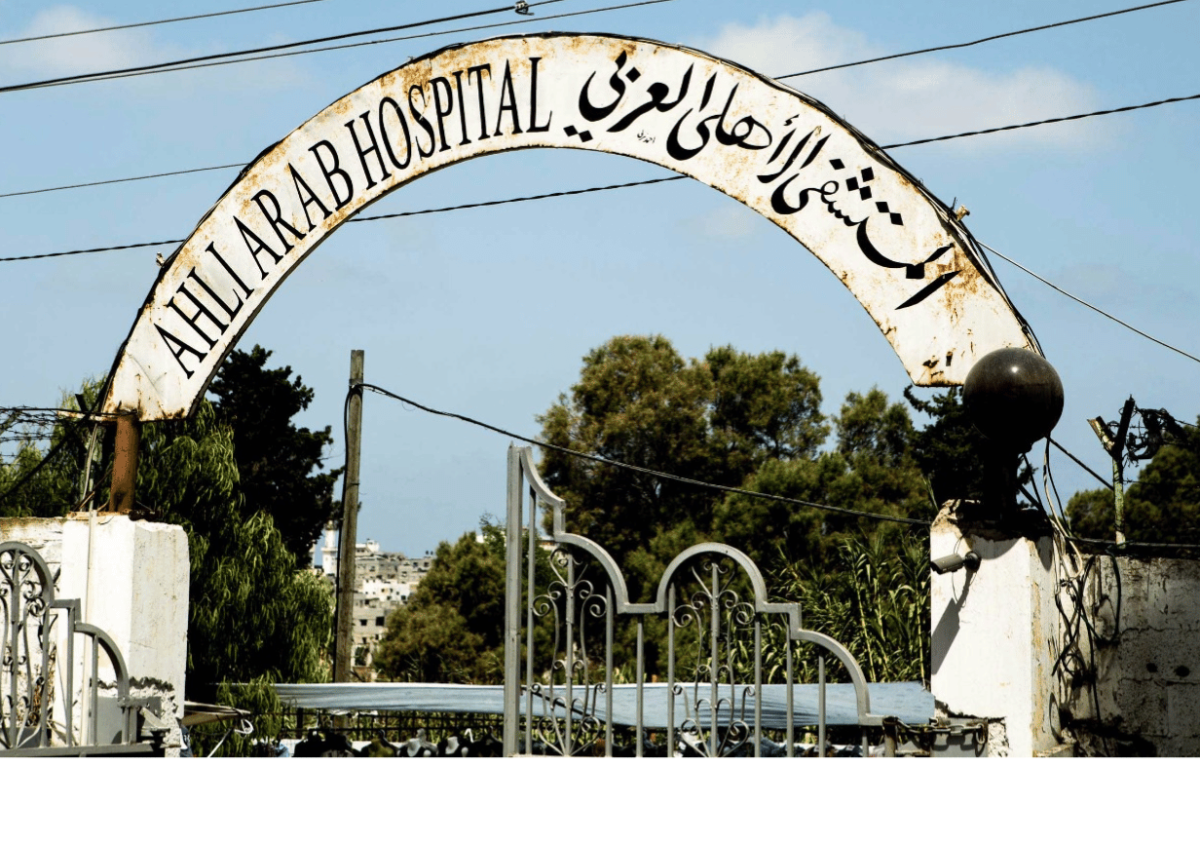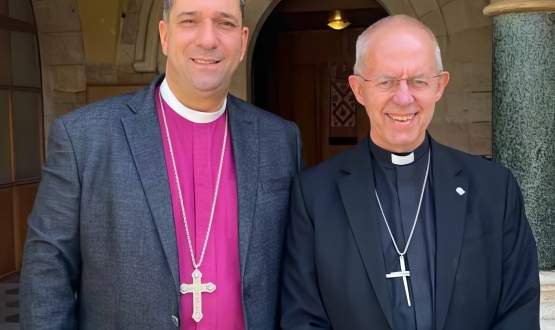The Archbishop of Canterbury, Justin Welby was preaching at the Eucharist in St George’s cathedral in Jerusalem on Sunday (October 22nd), as part of his Pastoral Visit to Jerusalem, his third visit to the city in ten years.

He took his text from the day’s Gospel (Matthew 22:15-22) which recounts an attempted entrapment of Jesus. Opponents offered him a binary choice as answer to a trick question, knowing that whichever answer he chose would condemn him in the eyes of one constituency. The archbishop spent twenty-four minutes attempting to avoid the same trap by stressing that Christians were not being asked to pick one or other side in the current conflict. Rather they were to be the standard bearers of moral certainties that applied to both sides. They were to speak and act in love, mercy and forgiveness; focus on the plight of the weak and vulnerable, and
stand up against injustice wrong and tyranny.
In his sermon, Archbishop Welby made particular reference to the situation of people in the West Bank occupied areas. He said that it was difficult for an outsider to imagine how it must feel to see a family member shot by “someone who had no right to be there in the first place, by international law.” The previous day Archbishop Justin had visited the Augusta Victoria Lutheran Hospital, and the Princess Basma Centre, both of which are on the Mount of Olives, and both of which are partners with the damaged Al Ahli Hospital. He had seen at first hand the effects of the shutdown on Gaza and the West Bank occupied areas. Children who desperately needed treatment in Jerusalem’s oncology units were unable to travel to receive essential treatment for their cancers. He also heard that the partners are keen to resume their plans for the Cancer Care Centre at Al Ahli as soon as conditions on the ground permit. He reiterated his call for a humanitarian ceasefire and the opening of humanitarian corridors.

Archbishop Welby was warm in his support for all that the Diocese is doing to alleviate suffering – a support further evidenced in his joint appeal made with Archbishop Hosam. This international appeal calls for prayers and donations not only for the work of the Anglican-run al-Ahli Arab Hospital’s vital work in Gaza, but also for the Diocese of Jerusalem’s ministries throughout the Holy Land which are also being greatly affected by the Israel-Hamas war. Archbishop Hosam writes:
"Although Ahli’s buildings were heavily damaged, two nights later our devoted staff partially reopened the hospital. In doing this, they demonstrated the determination we have in the Diocese of Jerusalem to persevere in our Christian mission to serve others as though we were serving Christ himself (Matt 25 :31-46). And this is the case not just for Gaza, but throughout all the Holy Land. Yet in order to accomplish this mission in the midst of a devastating war, we need to draw upon the strength of the larger Body of Christ. For we understand that when one member of the Body suffers, all parts suffer (1 Cor 12:26).
And so, my sisters and brothers in Christ, I appeal to you to first of all to pray for our mission here, as well for the peace of Jerusalem (Psa 122:6). Secondly, advocate with your representatives for a just and lasting peace in the Holy Land, so that all who dwell within these lands can live in security.
Finally, if you are able, support our ministries in Gaza, Palestine & Israel, and throughout the Diocese of Jerusalem by contributing financially through one of our international partners."
Archbishop Welby made more specific mention of the hospital, as he supported the joint appeal. He writes:

"When the lives of the innocent are at risk, we strain our eyes for the light of the One who offers healing, peace, and justice. In Gaza, the Al Ahli hospital, run by the Diocese of Jerusalem, is that light. Despite being hit by rocket fire last week, it is still providing critical care to the injured and anyone in need of medical attention. As health services become even more vital in Gaza, the work of the hospital becomes more difficult for urgent need of medications, equipment and fuel."
What is happening heroically at Al Ahli Hospital is a prime example of what Archbishop Welby claims as the role of the Church:
it refuses to hate
he concluded his sermon,
but refuses also to withdraw from the world. It seeks to be a blessing to all. It continues its messy involvement in the world as it is.
Posted 25/10/2023

